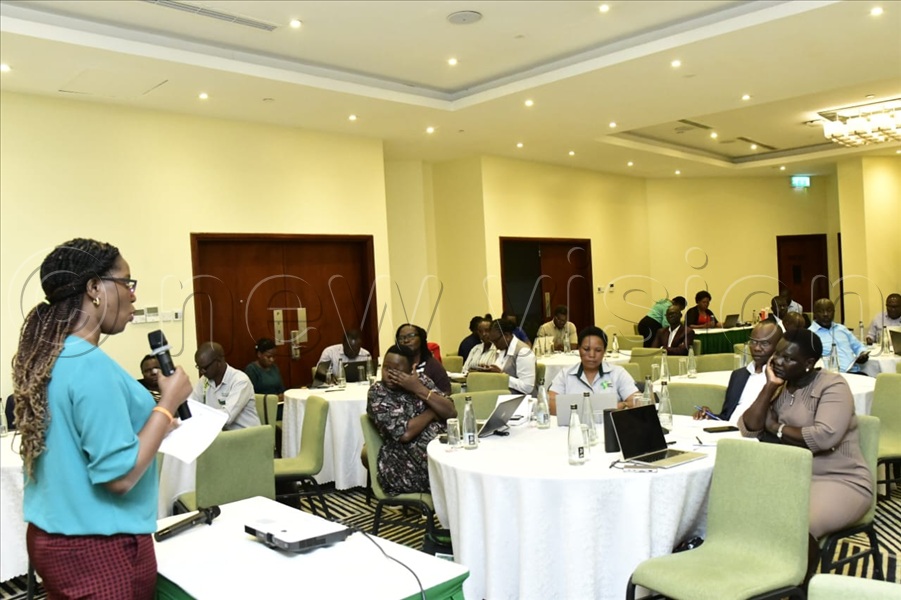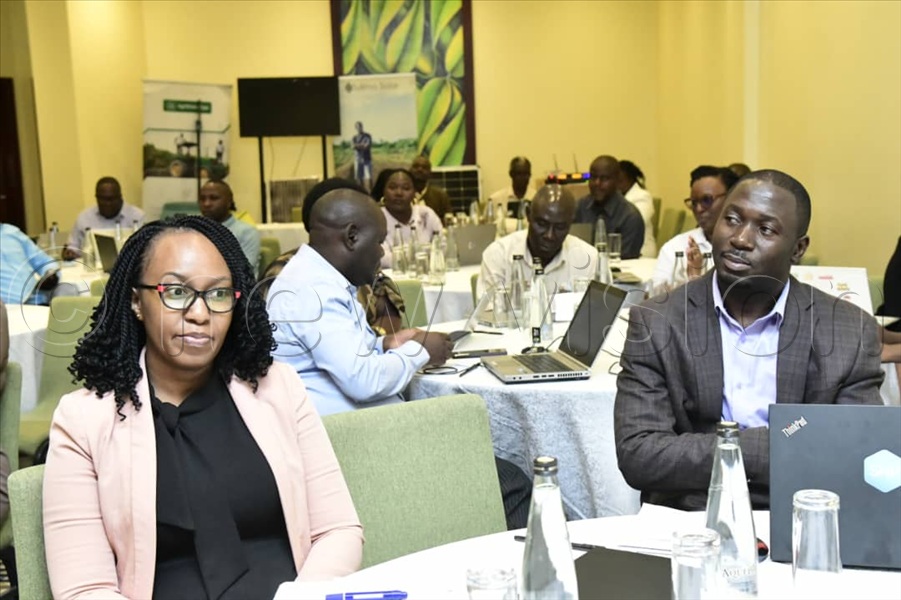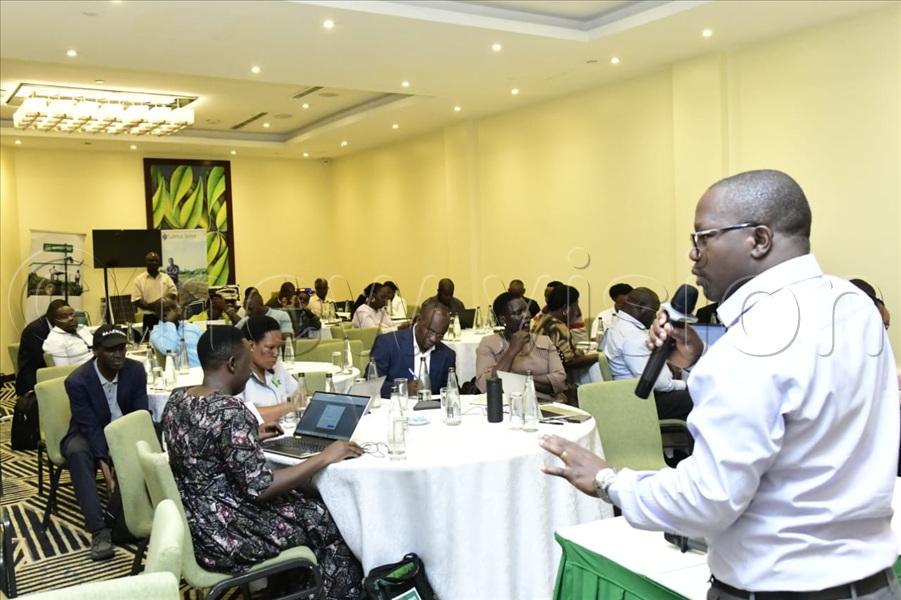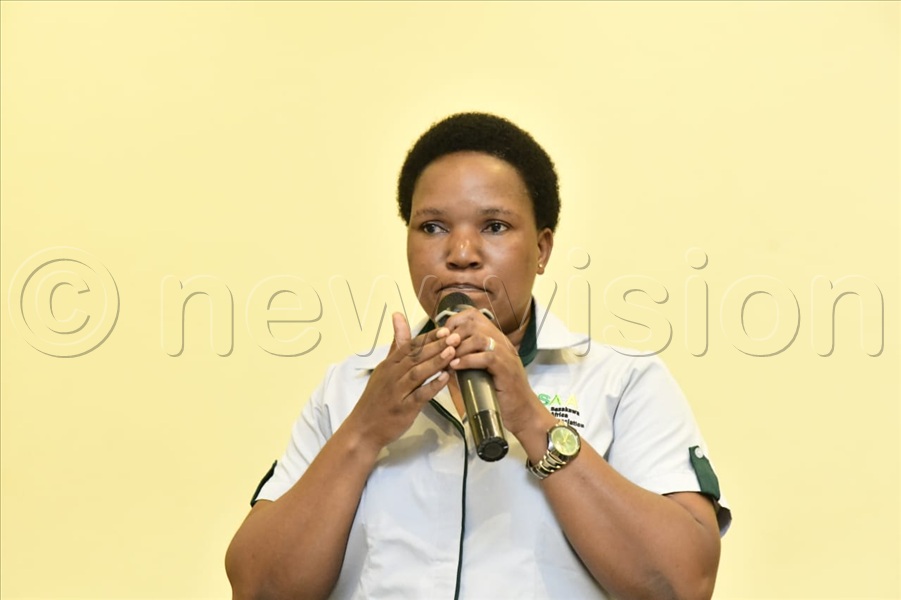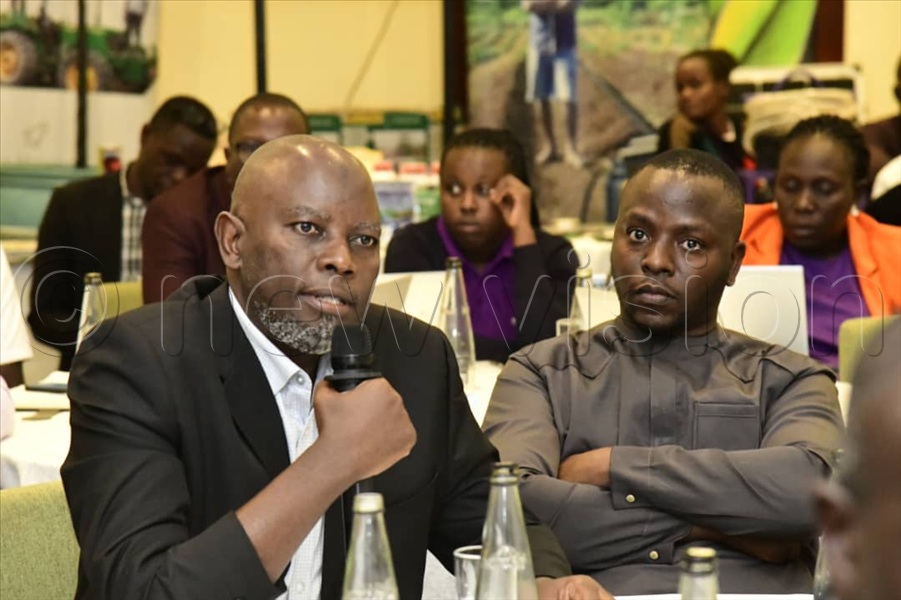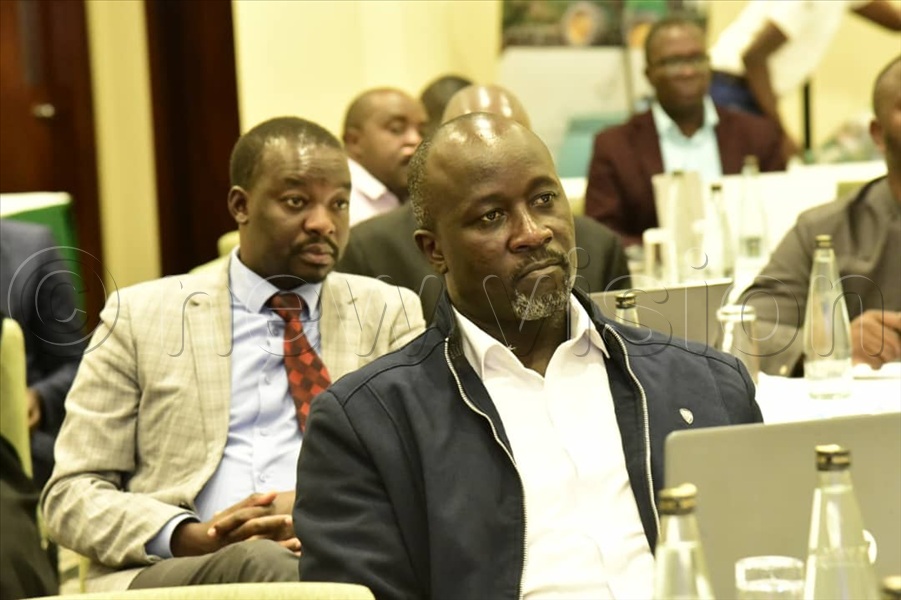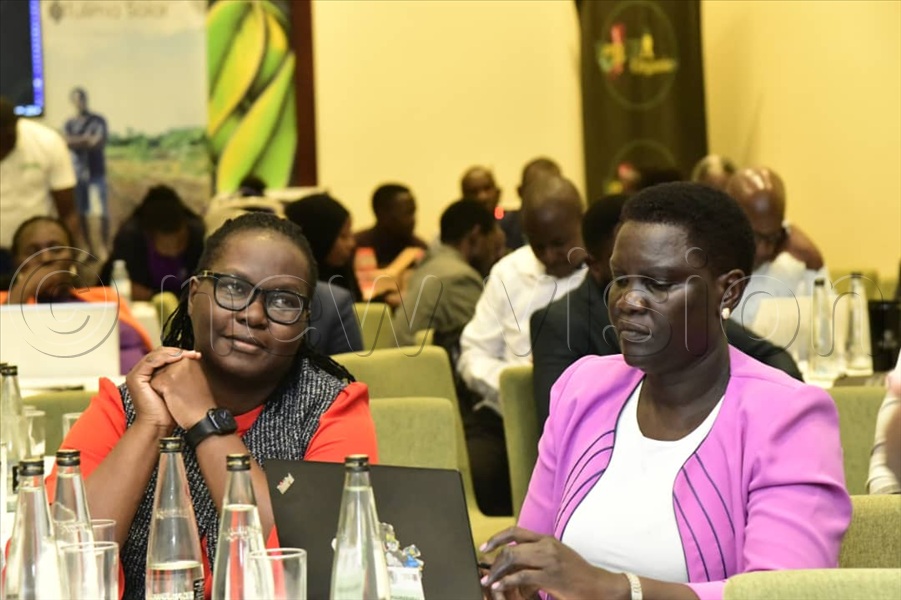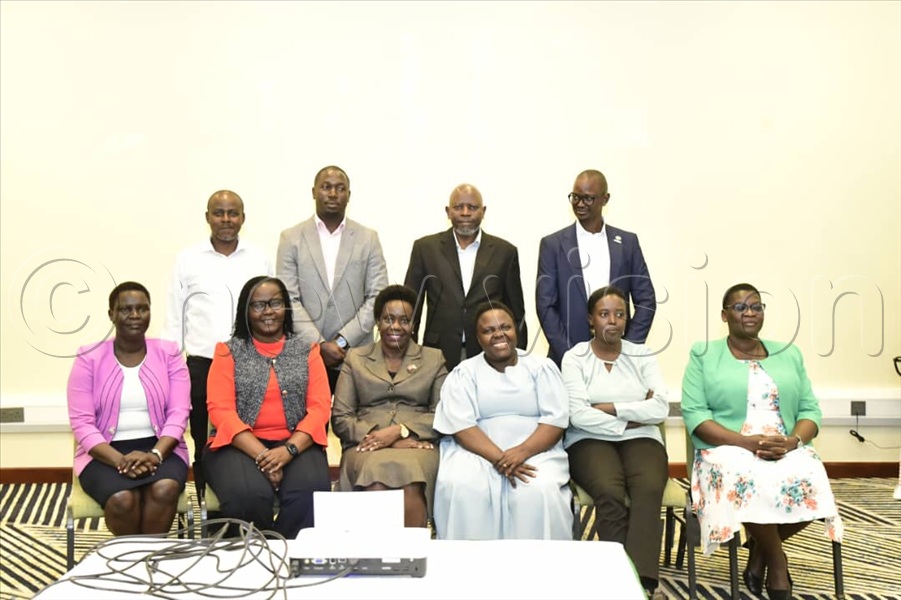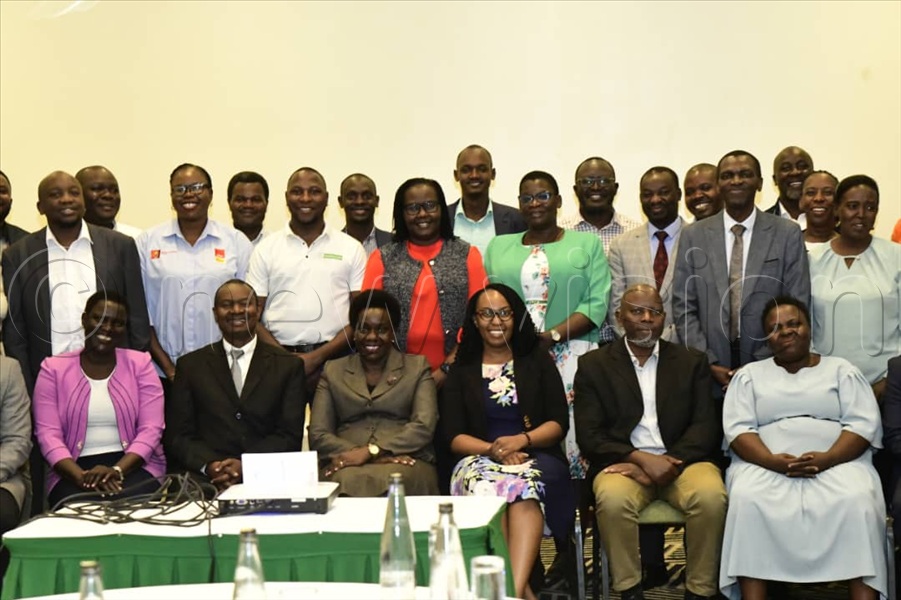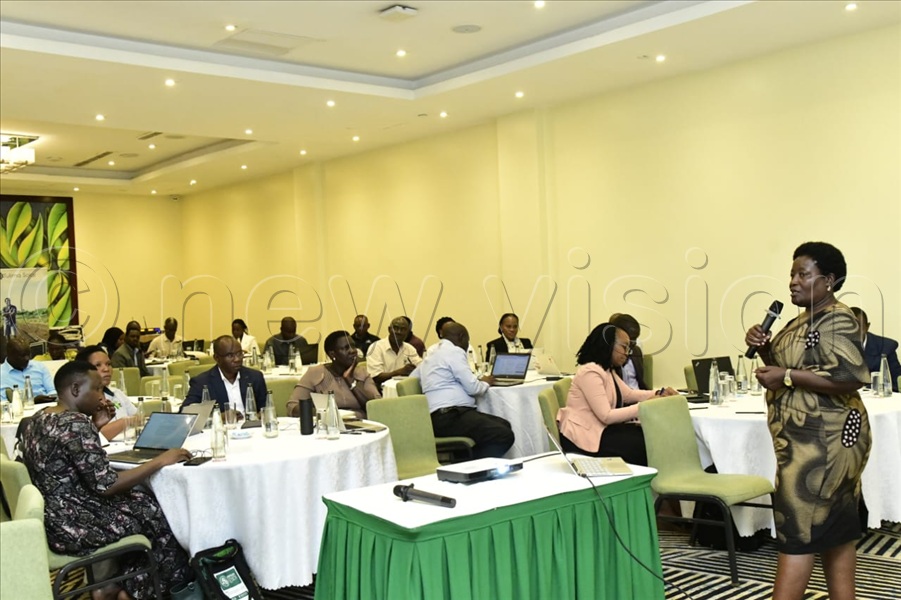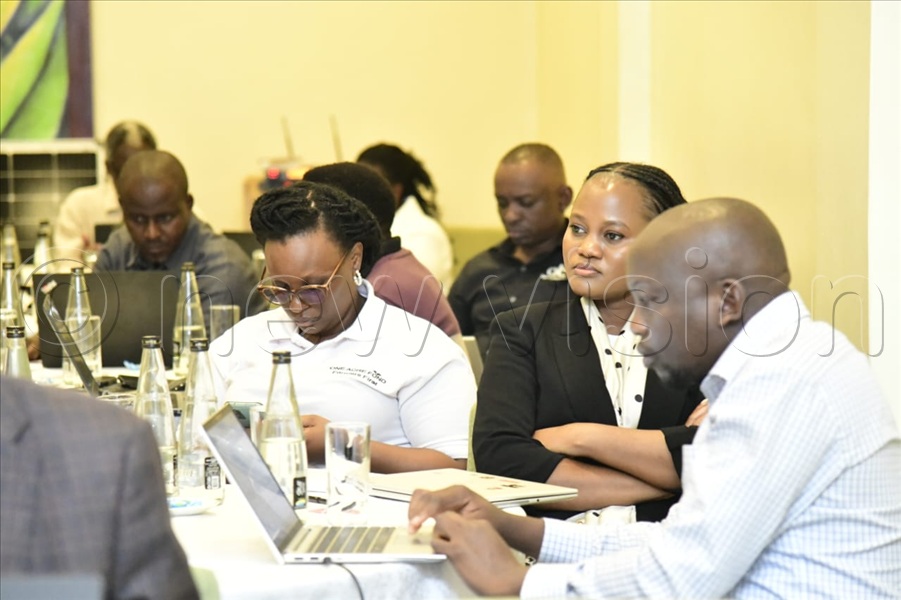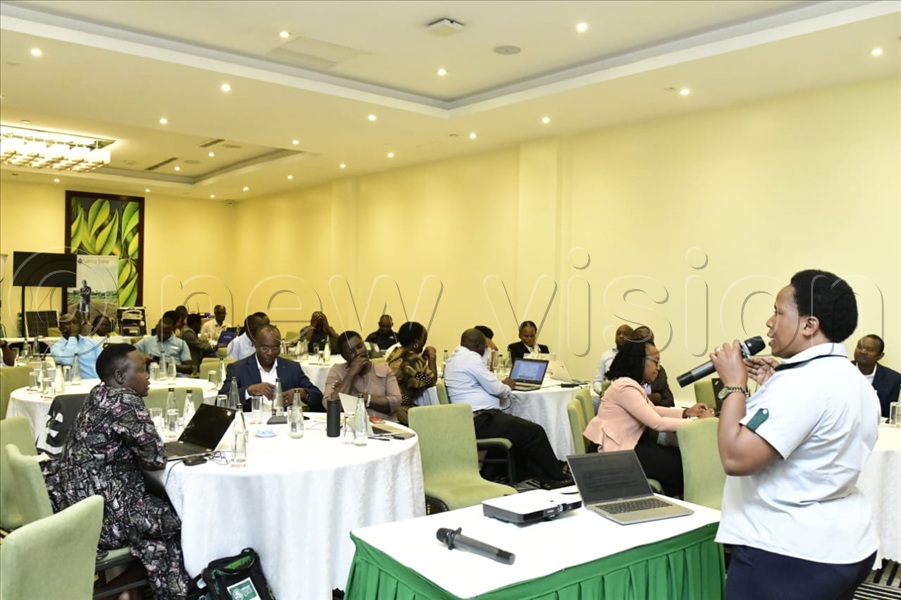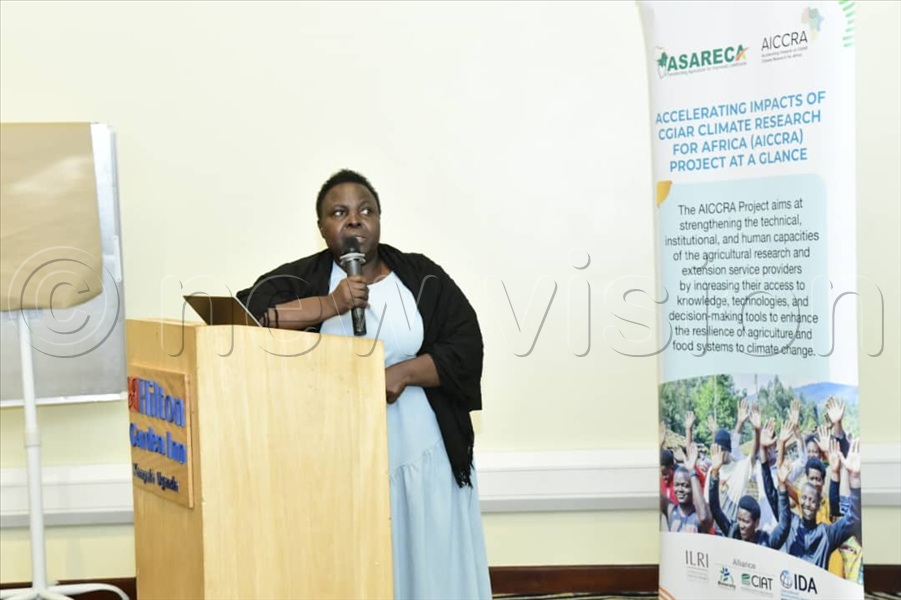📸 Gov’t appeals to partners for support, promotion of climate-smart agriculture
In areas where there is need for water dams, Dr. Opolot says, the government is investing in excavations and making them operational and accessible to the farmers.
The theme of the event was “Supporting Uganda to achieve its National Determined Contributions.” (Credit: Eddie Ssejjoba)
KAMPALA - The Government has appealed for support from its partners amidst the growing need to promote Climate Smart Agriculture (CSA) as a new approach to increase agricultural production and reduce climate change effects.
The approach, according to experts, is critical in integrating agricultural development with climate responsiveness to sustainably increase productivity.
The approach also enhances resilience to climate change impacts that have caused huge losses to ordinary farmers, aiming at achieving food security.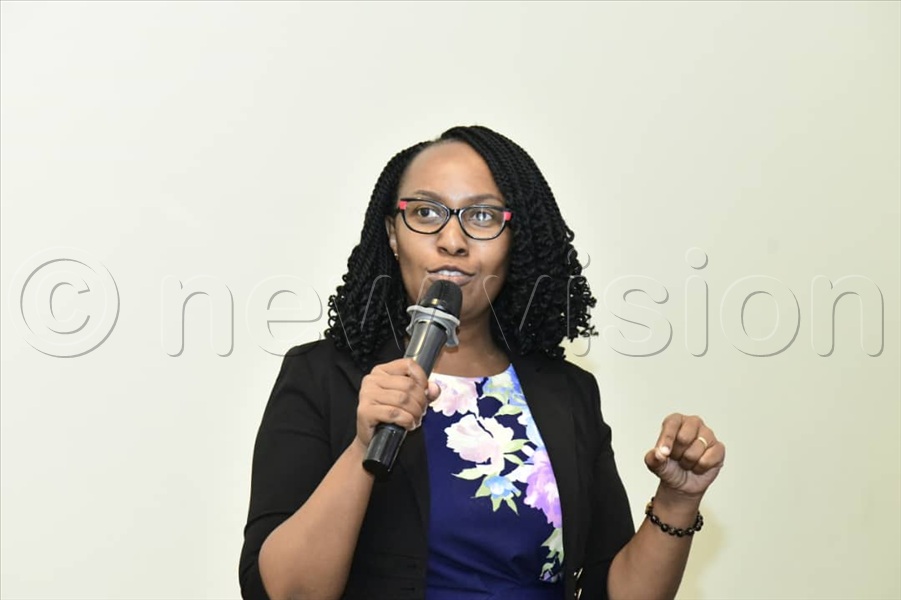
Julian Barungi Program Officer ASARECA speaking to participants. (All Photos by Eddie Ssejjoba)
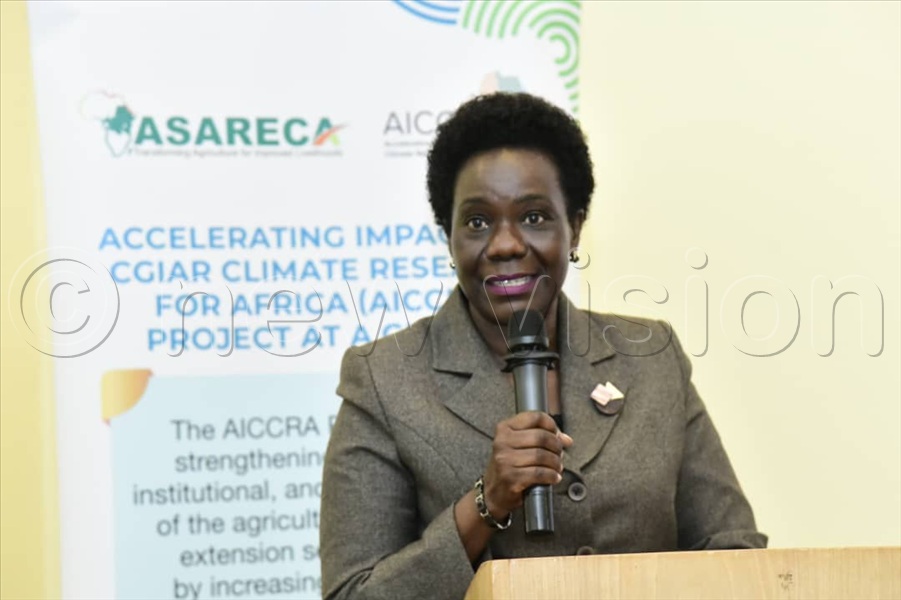
Undersecretary Mary Achaa, said that the ministry’s focus remains steadfast on enhancing food security, improving livelihoods, and adapting to the undeniable impacts of climate change on the agricultural sector.
Dr. Henry Nakelet Opolot, the commissioner for agricultural extension and skills management at the Ministry of Agriculture, Animal Industry, and Fisheries (MAAIF) says government has, however, tried its best in addressing these challenges amidst financial limitations and coordination trials.
Among these, he says, the government is prioritising agricultural mechanisation, and has heavily invested in procuring big-sized tractors as well as walk-behind tractors that are being distributed to the farmers, with many more on the way.
“With this investment, the government is aiming to have two farms, tractors per parish and one big tractor in every sub-county throughout the country. This is aimed at helping farmers in land opening and other farm operations,” he explains, adding that another priority is in irrigation schemes.
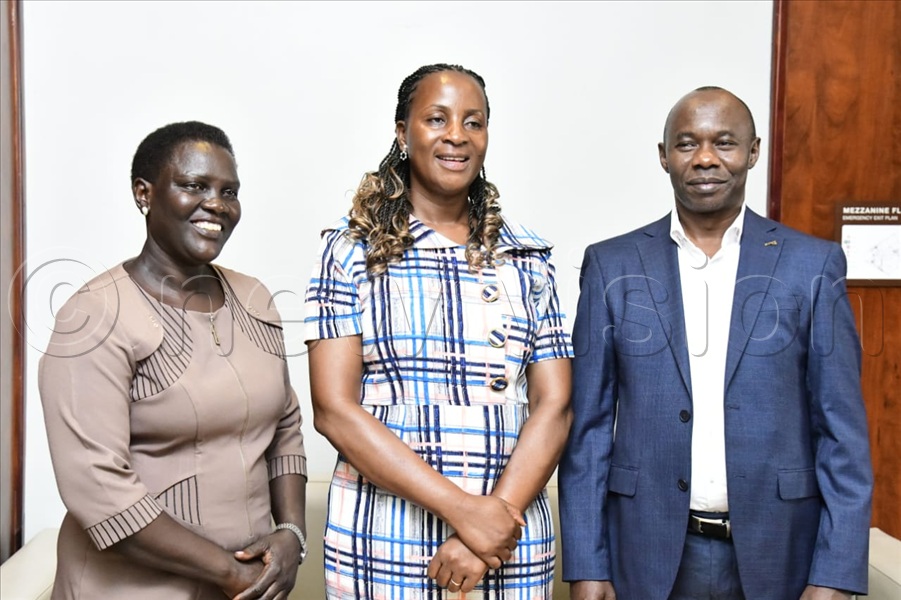
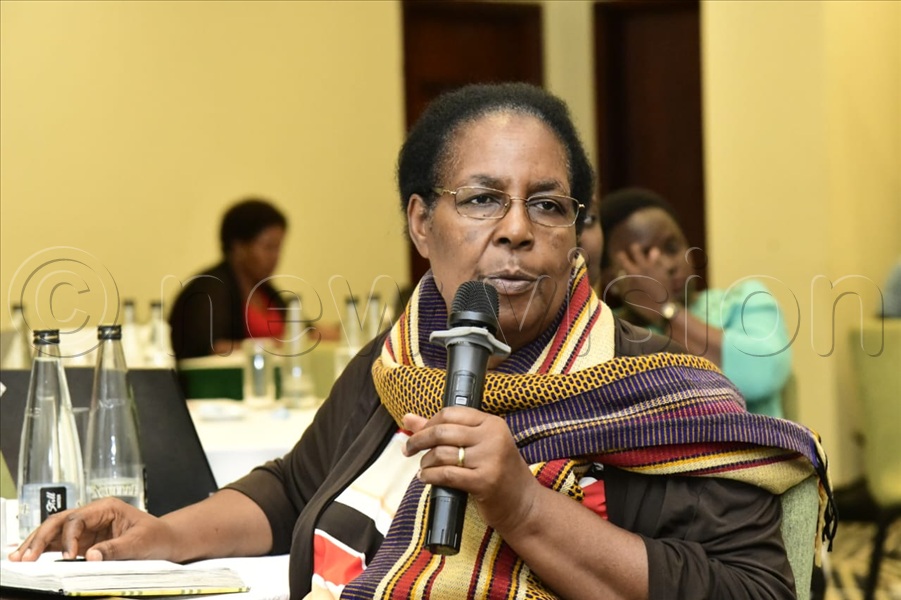
“That is why most of the government investment these days is on irrigation, both in large and small-scale irrigation, although the need is still big.”
In areas where there is need for water dams, Dr. Opolot says, the government is investing in excavations and making them operational and accessible to the farmers.
The other intervention, he says, is an investment in sustainable land management. “Because sometimes it is not only about irrigation, but how to keep the moisture in the soil,” he explains.
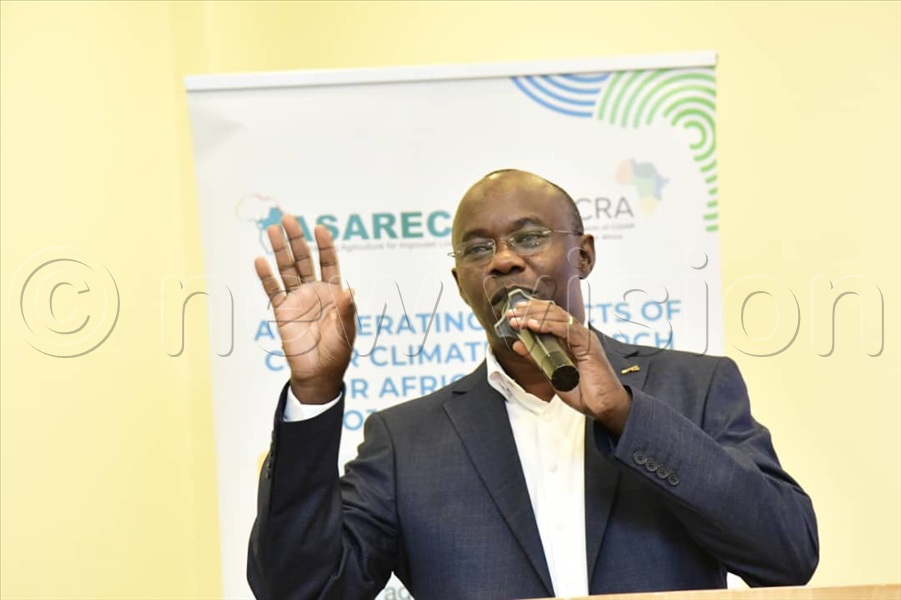
In areas where there is need for water dams, Dr. Opolot said, the government is investing in excavations and making them operational and accessible to the farmers.
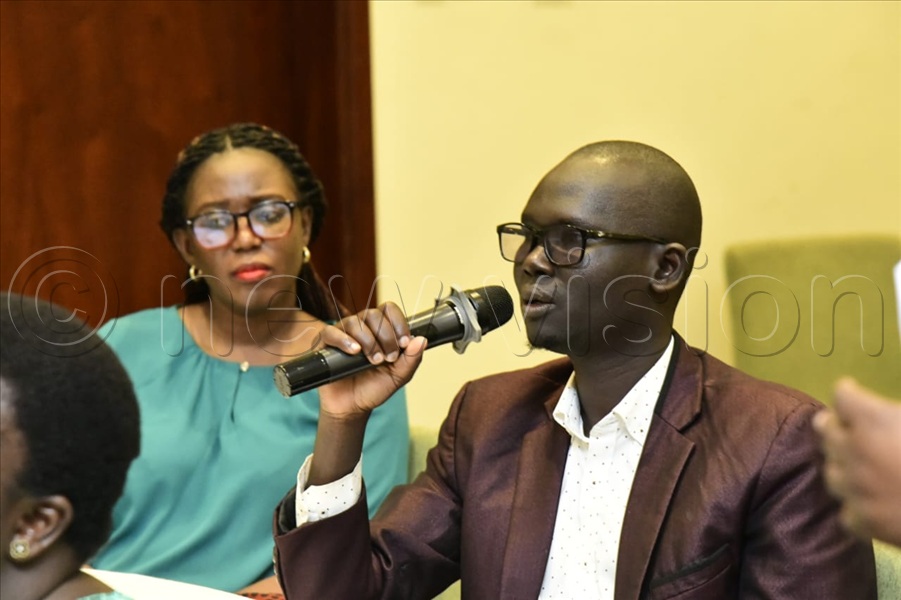
In the livestock sector, he states, investment has been made in promoting pasture growing, and harvesting it when there is abundance and keeping it as silage for feeding the animals when there is scarcity.
“We have all those interventions in place, but the coverage is still small, yet the need is still huge. That is why having partners on board is critical,” he says, adding that there is still need for support in addressing the issue of agricultural infrastructure, which he says is key for production. Other areas include storage for post-harvest handling, value addition and machinery.
As Government, the commissioner says, “We are trying what we can, but we also look up to our different partners, like the World Bank, African Development Bank, JICA (Japan International Cooperation Agency), KOICA (Korea International Corporation Agency), IFAD (International Fund for Agricultural Development).”
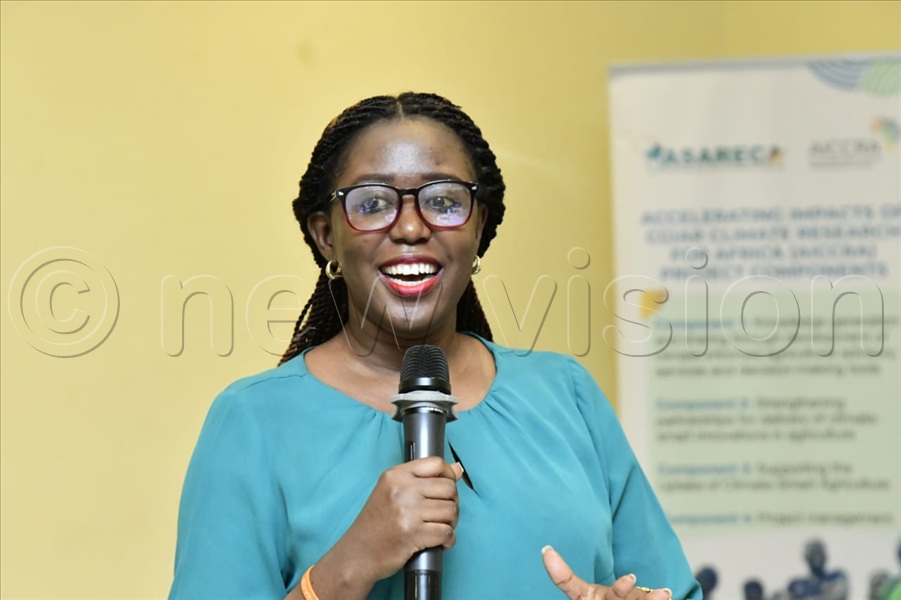
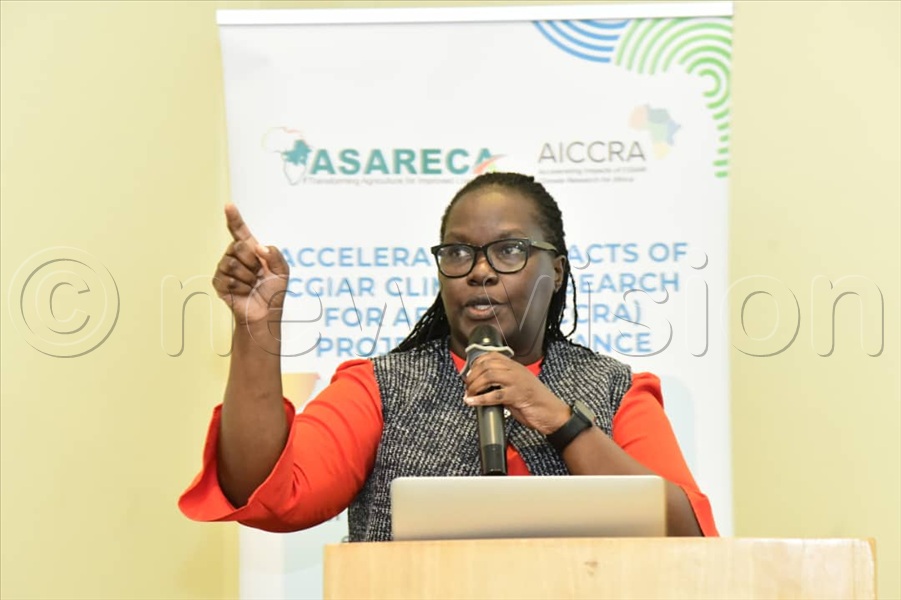
He adds, “Because there is still a lot more to be covered. The country is big and the need is huge, yet all farmers are affected; we still need a lot more support and investment.”
The commissioner made the remarks during the Climate Smart Agriculture (CSA) multi-stakeholder platform annual review event organised at Hilton Garden Inn, Kamwokya in Kampala, between September 19th and 20th.
The theme of the event was “Supporting Uganda to achieve its National Determined Contributions.” It was organised by the Association for Strengthening Agricultural Research in Eastern and Central Africa (ASARECA).
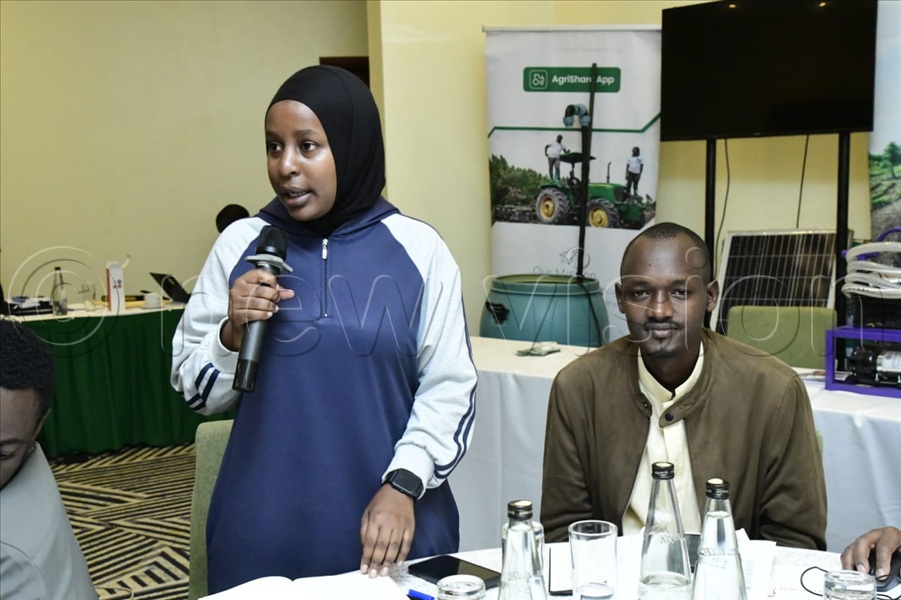
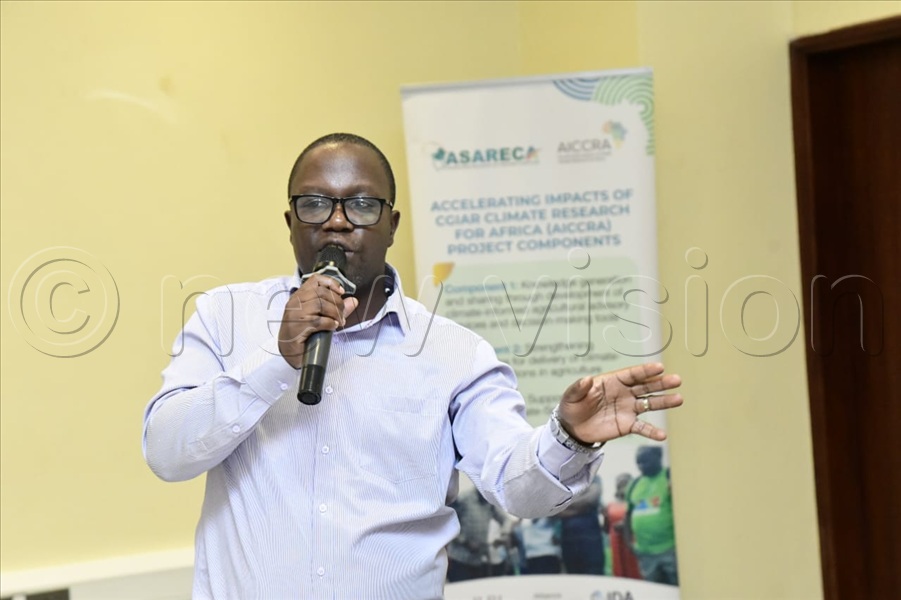
It was the third annual event, and attracted state and non-state institutions in Uganda that have ongoing CSA initiatives and projects from the Ministry of Agriculture, Animal Industry and Fisheries, research organisations, UN agencies, farmer organisations, among others.
The Permanent Secretary, MAAIF, Maj. Gen. David Kasura Kyomukama, in an opening speech read for him by Undersecretary Mary Achaa, says that the ministry’s focus remains steadfast on enhancing food security, improving livelihoods, and adapting to the undeniable impacts of climate change on the agricultural sector.
He says the agriculture sector has embraced CSA interventions to respond to the global crisis of climate change.
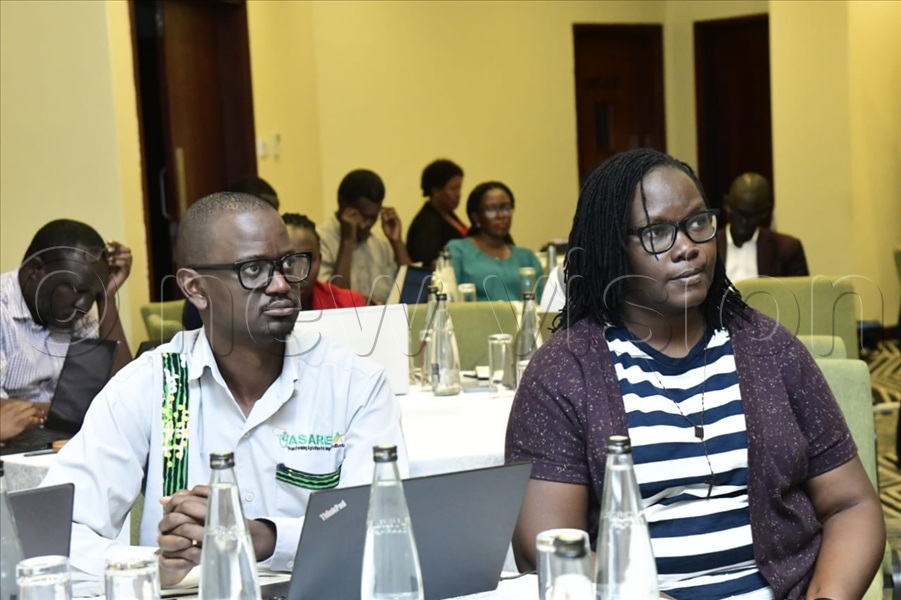
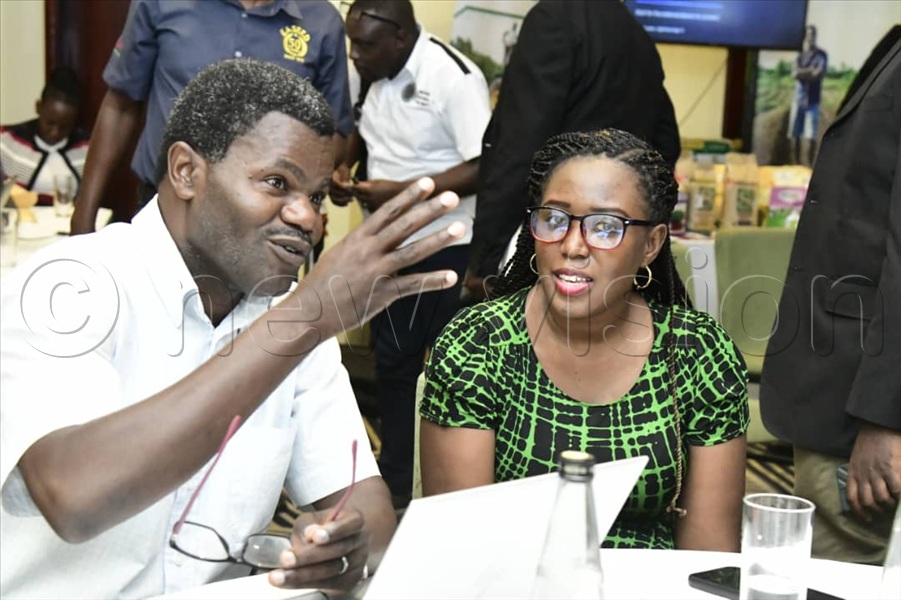
“Various interventions in the sector by state, non-state and private sector players are continuing to address these emerging climate change concerns,” he says, stressing the need for harmonised stakeholder collaboration and coordination, which he believes is paramount.
Julian Barungi, Programme Officer Policy at ASARECA says the event was intended to facilitate the sharing of knowledge, experiences, and lessons in CSA that different key stakeholders are implementing in Uganda.
“You find that so many stakeholders are implementing different agriculture initiatives, and if you don’t speak to one another, there will not be coordination,” she says, adding that lack of coordination would lead to duplication of efforts, and lack of efficient use of the resources that are coming into CSA in the country.
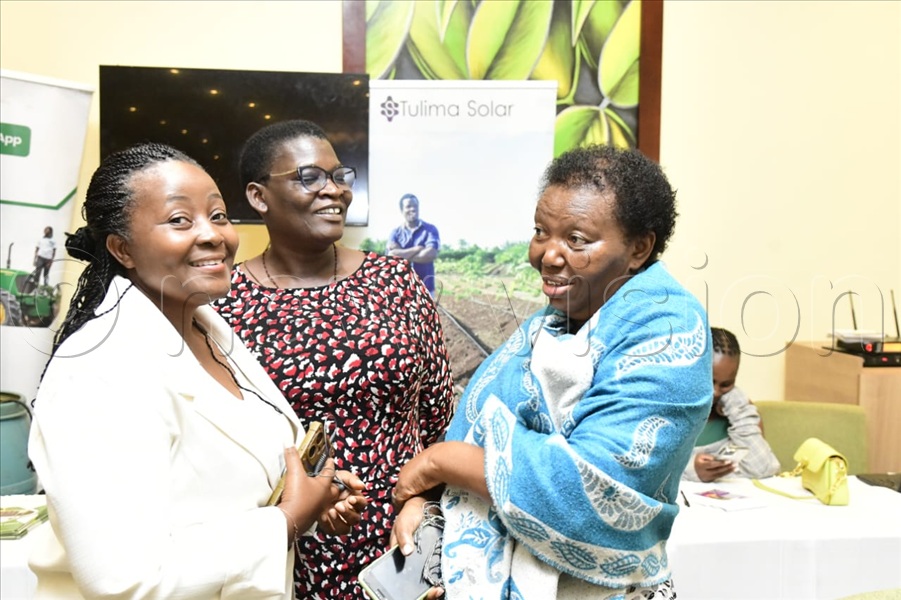
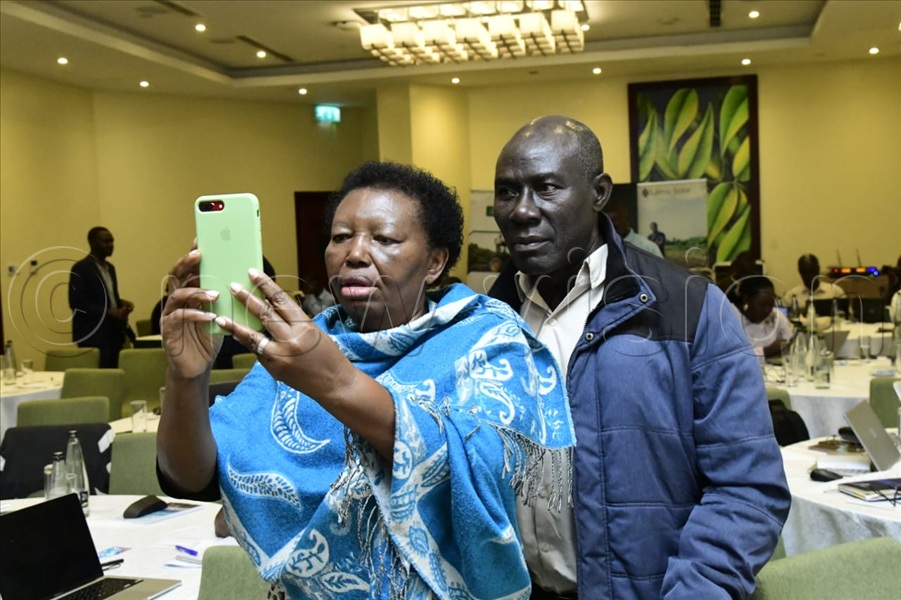
The participants, she says, were able to form a CSA, a forum that brings them together to ensure they leverage the resources and expertise within the school of experts in the Uganda CSA multi-stakeholder platform.
“We should be able to take CSA to the next level and support the farmers and the different stakeholders to cope with the effects of climate change,” she says.
She adds that one of ASARECA’s core mandates is to ensure that technologies that are developed through research organisations reach the smallholder farmers.
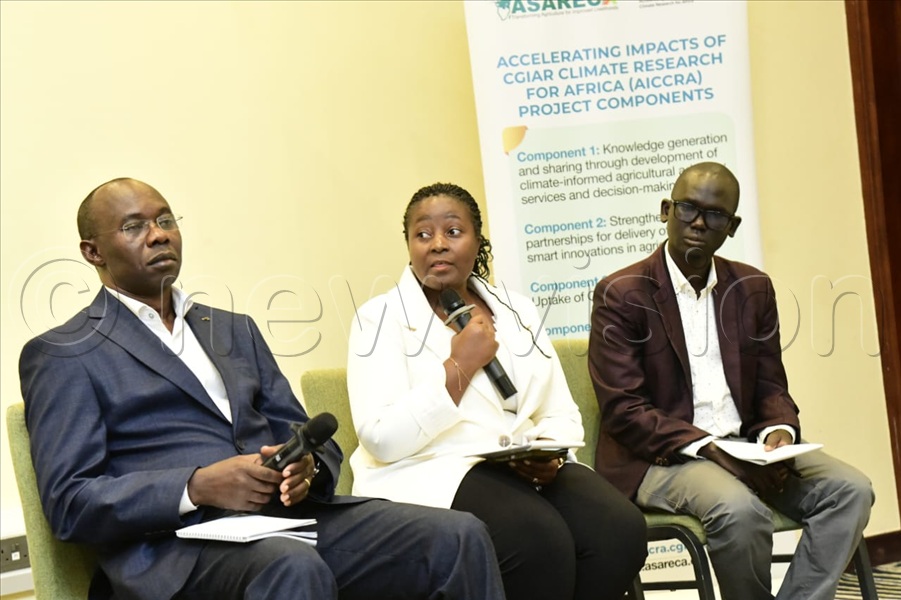
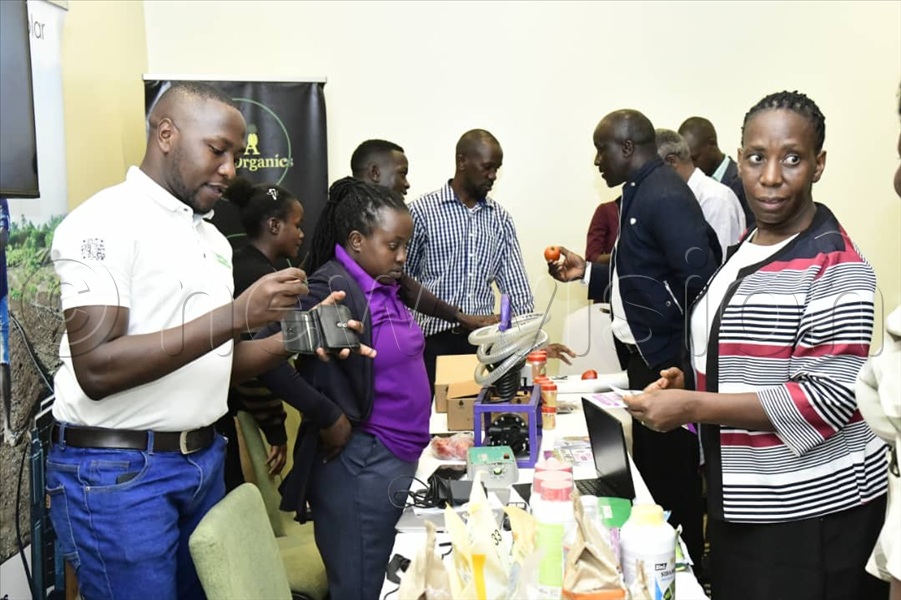
“We feel that the CSA multi-stakeholder platforms are an avenue that can be used to promote the skilling of agricultural technologies and ensure that they reach the farmers,” she explains, adding that it also ensures that the CSA policies work for the farmers and facilitate them to access and utilise the SCA technologies.
The direct benefits to the farmers, according to Barungi, include having an organised and consolidated group of stakeholders targeting them to ensure they receive the CSA technologies, utilise them and transform their livelihoods.
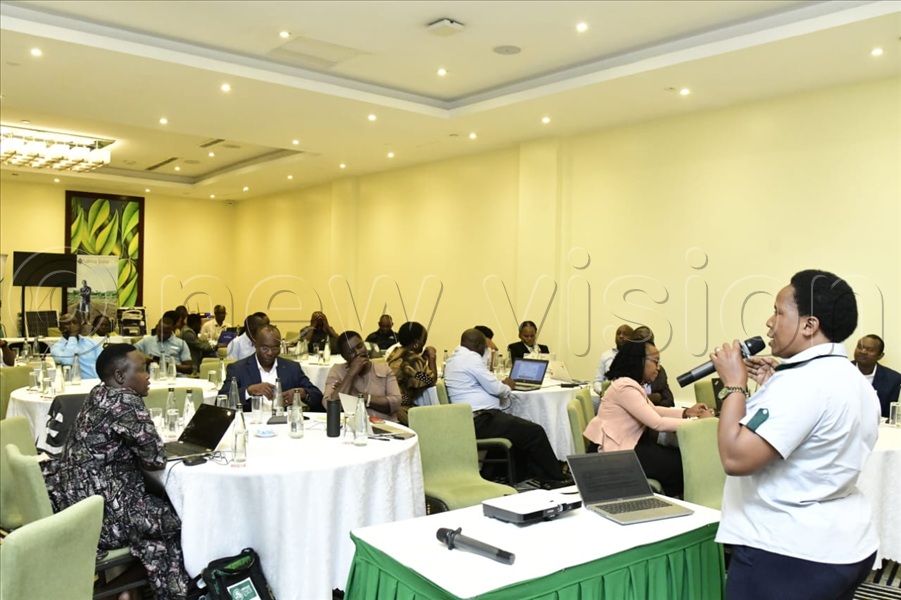
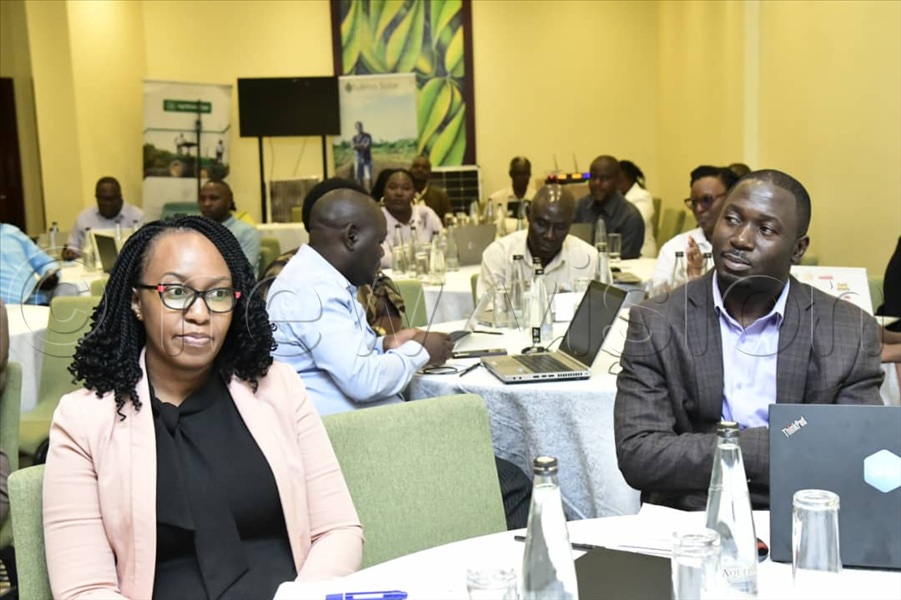
“All these stakeholders, whether researchers or private sector, the academia, NGOs, or International research organisations that are working on issues of CSA are all targeting the farmer at the end of the day, so having them speak to each other and leverage on their different resources and expertise and come together and put one impactful package for the farmer is really beneficial,” she emphasises.
_________________________
Below is the event's picture highlight as captured by Edddie Ssejjoba;
